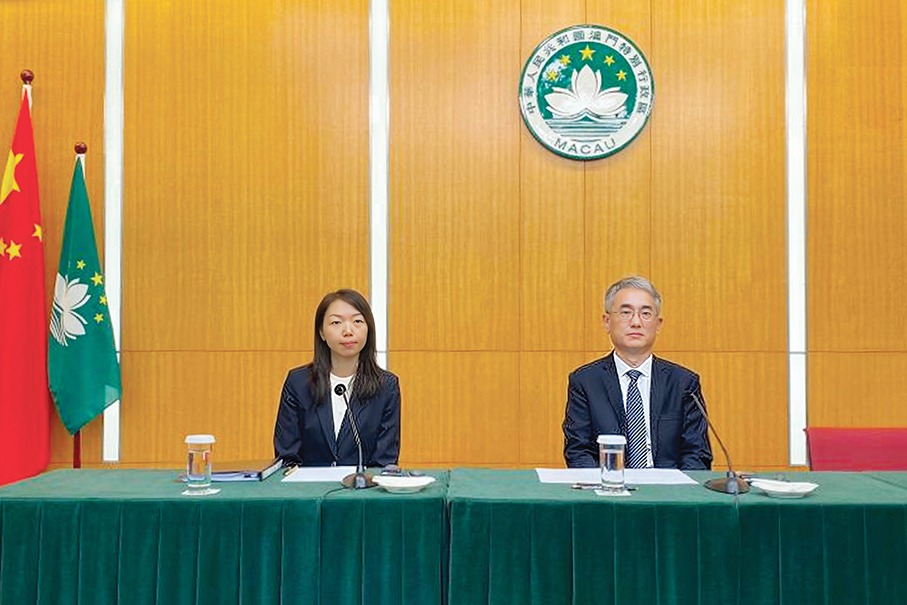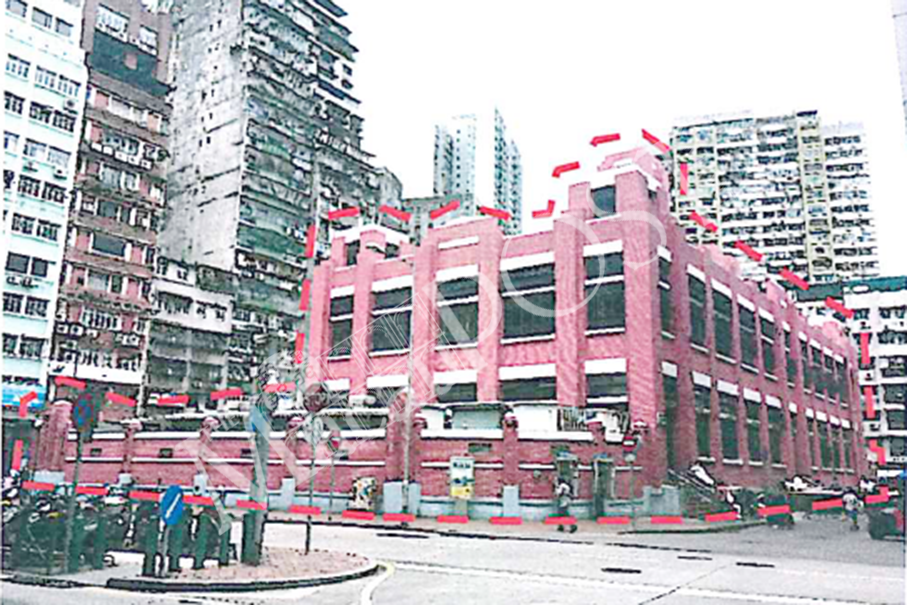Secretary for Administration and Justice André Cheong Weng Chon, who is also the spokesman for the government’s top advisory Executive Council, has announced that the government has finished drafting a bill amending the Legislative Assembly (AL) Election Law, which proposes that the Committee for Safeguarding National Security of the Macau Special Administrative Region (MSAR) will be tasked with assessing whether legislative election candidates uphold the MSAR Basic Law and bear allegiance to the MSAR.
Cheong made the announcement during a press conference at Government Headquarters on Friday. The amendment bill will be submitted to the Legislative Assembly in due course for debate, review and vote.
The MSAR Legislative Assembly election, which takes place every four years, comprises direct and indirect elections. The current legislature has 33 members, comprising 14 deputies directly elected by universal suffrage, 12 deputies indirectly elected by registered association representatives and seven deputies appointed by the chief executive.
The next legislative direct and indirect elections will be held in 2025.
Cheong underlined on Friday that the amendment bill aims to ensure the full implementation of the “patriots governing Macau” principle and improve the administrative procedures for the organisation of the legislative elections.
According to Cheong, the amendment bill proposes that when the Legislative Assembly Electoral Affairs Commission (CAEAL) is assessing legislative election candidates’ qualifications, it will be required to request the Committee for Safeguarding National Security of the MSAR to assess whether the candidates uphold the MSAR Basic Law and bear allegiance to the MSAR.
The amendment bill proposes that if the CAEAL decides to disqualify a legislative election candidate after the Committee for Safeguarding National Security of the MSAR has concluded that he or she does not uphold the MSAR Basic Law or has been disloyal to the MSAR, the respective candidate cannot file an appeal to the CAEAL nor the courts against the decision.
In such circumstances, according to the bill, he or she will also be ineligible to stand as a candidate for the next five years.
Moreover, according to Cheong, the amendment bill also proposes to criminalise those who publicly incite others to cast blank or invalid votes, or to abstain from voting, in the legislative election. The bill proposes that the offenders will face a prison term of up to three years.
The local government carried out a public consultation between June 15 and July 29 on proposed amendments to the Chief Executive Election Law and the Legislative Assembly Election Law, after which the government only submitted a bill amending the Chief Executive Election Law to the legislature in August first. Lawmakers unanimously passed the outline of the Chief Executive Election Law amendment bill during a plenary session last month, after which it was passed to the legislature’s 2nd Standing Committee for an article-by-article review. Once the committee finally completes its review, the Chief Executive Election Law amendment bill will be resubmitted to another plenary session for its second and final debate and article-by-article vote.
After the government submits its Legislative Assembly Election Law amendment bill, which was announced on Friday, to the legislature, the latter will schedule a plenary session for the debate and vote of its outline.
Provisions proposed by the Chief Executive Election Law amendment bill are similar to provisions proposed by the Legislative Assembly Election Law amendment bill.

Secretary for Administration and Justice André Cheong Weng Chon (right) and Legal Affairs Bureau (DSAJ) Director Leong Weng In address Friday’s Executive Council press conference at Government Headquarters. Cheong headed the bureau from 2000 to 2014.
– Photo courtesy of TDM








